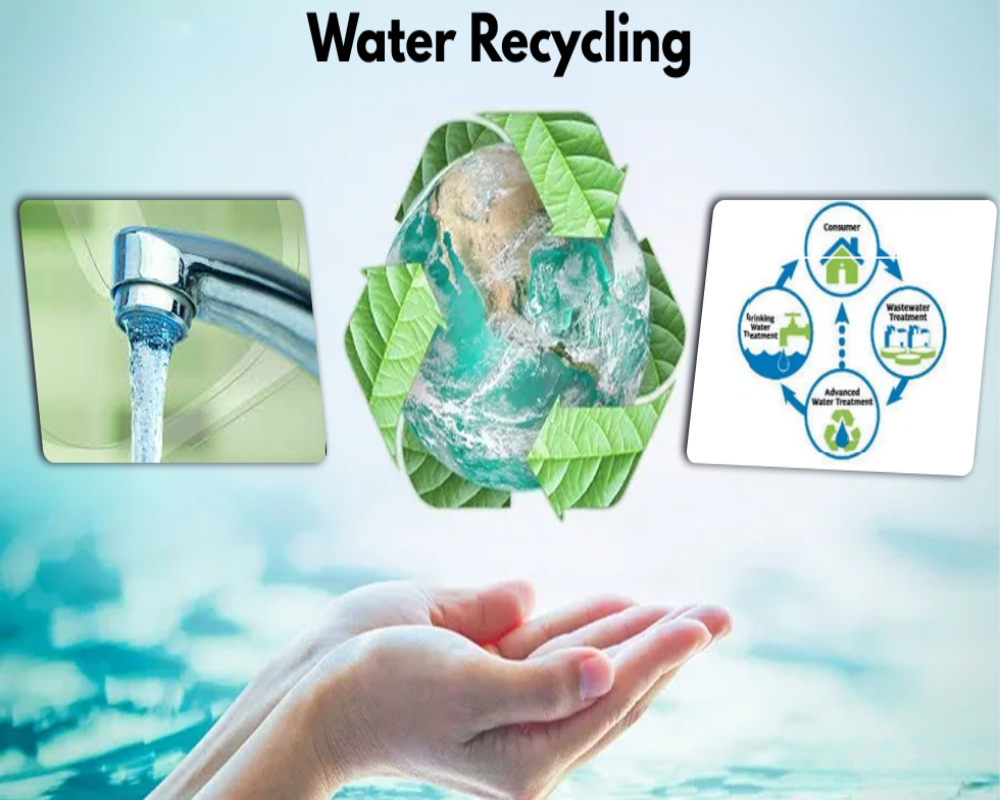Introduction
Water is a vital resource for industrial operations, playing a crucial role in manufacturing processes, cooling systems, cleaning, and more. However, with increasing water scarcity, environmental regulations, and rising costs, industries are under growing pressure to manage water use efficiently. One of the most effective strategies is the adoption of water recycling systems. These systems enable the treatment and reuse of water within the industrial cycle, reducing both freshwater consumption and wastewater discharge. Water recycling is not only environmentally responsible but also economically beneficial, especially in water-intensive industries such as textiles, chemicals, pharmaceuticals, food processing, and metal fabrication.
Understanding Water Recycling in Industrial Contexts
Water recycling in industry involves collecting used or contaminated water from various processes, treating it to remove impurities, and then reusing it for the same or different purposes within the facility. Unlike once-through water systems that use water a single time before disposal, recycling systems create a closed-loop that significantly reduces demand on external water sources.
The quality of recycled water depends on its intended reuse. For instance, water used for cooling or irrigation may require less treatment compared to water reused in product manufacturing or cleaning. Therefore, the level of treatment is customized based on specific industrial needs and compliance requirements.
Components and Technologies of Industrial Water Recycling Systems
A typical industrial water recycling system consists of several stages, each designed to target different types of contaminants. The process begins with pre-treatment, where large solids and suspended materials are removed through filtration or sedimentation. This is followed by primary treatment, which may involve coagulation, flocculation, and settling tanks to remove particulate matter.
Secondary treatment often includes biological processes or advanced filtration methods to reduce organic content, nitrogen, and phosphorus. If the water is to be used in high-purity applications, tertiary treatment or advanced treatment technologies are employed. These include membrane filtration (such as ultrafiltration and reverse osmosis), activated carbon adsorption, ion exchange, and ultraviolet (UV) disinfection.
Automation and real-time monitoring systems are also integral to modern recycling setups, ensuring the system operates efficiently and that the treated water consistently meets quality standards.
Applications of Recycled Water in Industry
Recycled water can be utilized in a variety of industrial processes. Common applications include:
- Cooling towers and boilers, where treated water reduces scaling and corrosion.
- Washing and rinsing operations, especially in food processing, automotive, and electronics manufacturing.
- Process water for non-contact operations, where the water does not come into direct contact with the product.
- Landscape irrigation and dust suppression, particularly in large industrial estates.
- Fire protection systems, where recycled water serves as a dependable reserve.
In some advanced systems, recycled water is treated to near-potable standards and used in high-purity manufacturing environments, showcasing the potential of water recycling to support even the most stringent industrial requirements.
Benefits of Water Recycling Systems
The primary benefit of water recycling is the reduction in freshwater consumption, which helps conserve natural resources and alleviates pressure on municipal supplies. Recycling also reduces the volume of wastewater discharged, helping industries comply with environmental regulations and avoid penalties for pollution. Furthermore, water recycling can lead to cost savings, particularly where water purchase or effluent treatment costs are high.
In regions facing water scarcity or drought conditions, having an internal recycling system provides operational resilience, ensuring continuous production even when external water supplies are disrupted. Moreover, companies adopting sustainable water practices often enjoy enhanced reputational value, which can improve stakeholder relationships and competitive advantage.
Challenges and Future Outlook
Despite its advantages, the implementation of water recycling systems can face certain challenges. These include high initial capital costs, the need for technical expertise, and space constraints for installing treatment infrastructure. Also, maintaining water quality over time requires consistent monitoring and occasional system upgrades.
However, advancements in treatment technologies, growing regulatory incentives, and greater awareness of water scarcity are driving wider adoption. As industries move toward sustainable development goals, water recycling is expected to become a standard practice rather than an optional strategy.
Conclusion
Water recycling systems are transforming how industries use and manage water. By treating and reusing wastewater within their operations, industries can significantly reduce environmental impacts, lower operating costs, and ensure a reliable water supply. While there are challenges in implementation, the long-term benefits—in sustainability, compliance, and operational efficiency—make water recycling a vital part of modern industrial practice. As technology continues to evolve and water conservation becomes more urgent, industrial water recycling will play a central role in shaping a sustainable industrial future.
Hashtags
#WaterRecycling #SustainableIndustry #WaterConservation #EcoFriendly #IndustrialWater #WastewaterManagement #WaterReuse #GreenTechnology #ResourceEfficiency #CircularEconomy #CleanWater #EnvironmentalImpact #WaterSustainability #IndustryInnovation #WaterManagement #RecyclingSystems #WaterTreatment #SustainablePractices #WaterEfficiency #EcoInnovation


